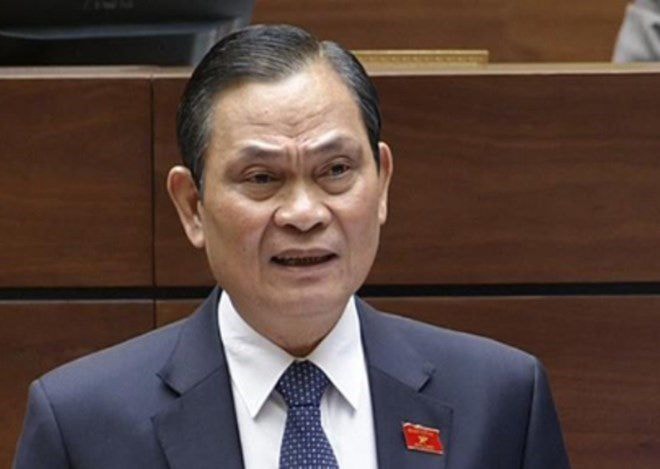A series of new points in the recruitment exam for leaders at the department, office and division levels
Not limited to each agency, organization, unit, but also civil servants and public employees who have been planned for equivalent positions and titles in each ministry, each industry, each locality, if they meet the standards and conditions, can also participate in the recruitment.
That is one of the new points in the Project "Piloting innovation in selecting leaders and managers at the department, office and division levels" approved by the Politburo and shared by Minister of Home Affairs Nguyen Thai Binh in the program "Citizens ask, Ministers answer" on the evening of September 27.
According to Minister Nguyen Thai Binh, the Politburo has approved the Project "Piloting innovation in the selection of leaders and managers at the department, agency and division levels" to overcome limitations and shortcomings in personnel work. The 9th Conference of the 10th Central Executive Committee has determined to continue implementing the personnel strategy from now until 2020. In particular, it is affirmed that it is necessary to innovate the selection of officials.
In recent times, a number of ministries, branches and localities have organized pilot implementation. However, the organization of the pilot implementation has not yet reached a consensus on criteria.
Furthermore, the recruitment methods are also different, such as the scope of candidates being expanded; some agencies, organizations, and units do not stipulate that candidates must be within the planning area.
Some agencies and units have expanded the number of candidates to public service units and enterprises. Or they use the examination to replace the entire current staff selection process. Regarding the written exam, it is also implemented similarly to the civil service recruitment exam and civil service promotion exam.
Therefore, building a project to innovate the selection of leaders at the department, office and division levels is very necessary in the current period.
 |
| Minister of Home Affairs Nguyen Thai Binh. |
A series of new points in the Project were raised by Minister Nguyen Thai Binh such as:
Firstly, the Project clearly stipulates the authority and responsibility of the head in proposing and introducing personnel to participate in the recruitment and must take primary responsibility for these personnel if appointed.
Second, the scope and subjects of the recruitment are expanded. Not limited to each agency, organization, unit, but also civil servants and public employees who have been planned for equivalent positions and titles in each ministry, each industry, each locality, if they meet the standards and conditions, can also participate in the recruitment. In case the candidates are not in the planning area, they must be approved by the competent Party Committee.
Third, the process is supplemented by a written test that is a prerequisite test for candidates. If the candidate scores 50 points or more on a 100-point scale, he or she will be allowed to present and defend his or her action plan before receiving a vote of confidence at the civil servant and public employee conference.
Fourth, the content and structure of the credit card have been changed. In addition to the first part which has some information related to the candidates, the second part is the main part, which is the content about evaluating the credibility of the candidates.
This part has 3 contents, the first is the quality and moral character of the candidate, the second part is the level, shown through the understanding of the industry and field of the candidate and the third part is the capacity, shown through the ability to speak, write and do. These three contents are shown through the level of passing and failing.
The Minister of Home Affairs also added that, according to the basic spirit of the Project approved by the Politburo, the scope of the pilot application focuses on 1/3 of the ministries, departments and branches at the Central level and 1/3 of the provinces and centrally run cities. The pilot implementation period is from the third quarter of 2015 to the third quarter of 2018.
Ministries, branches and localities selected for the pilot must develop a project and submit it to competent authorities for comments. On that basis, they will carry out innovation in the selection of leaders at the department, office and division levels.
According to Infonet






